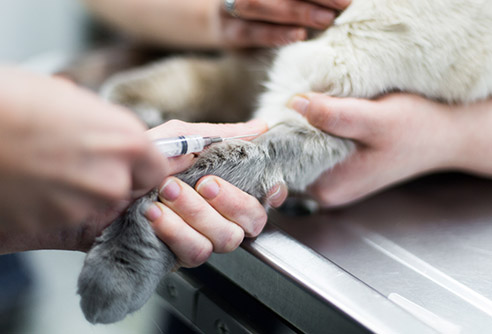Medical care

Dermatology (e.g., skin infections, allergies, external parasites, ear infections)
Neurology (e.g., epilepsy, intervertebral disc diseases, vestibular syndrome)
Internal Medicine and Endocrinology (e.g., diabetes, urinary tract diseases, Cushing’s disease)
Oncology (e.g., medical care for various cancers, diagnosis of cutaneous and subcutaneous masses)
Ophthalmology (e.g., glaucoma, corneal ulcers, conjunctivitis)
Emergency Care (e.g., physical trauma, intoxications, heat strokes)
Dentistry (e.g., dental abscesses, resorption lesions)
In this field, we assist your ill pets by diagnosing and treating their conditions. The diagnostic process can often be the most challenging aspect. Blood work, x-rays, ophthalmological testing, and skin scrapings provide vital information that enables the veterinarian to formulate an effective treatment plan.
Behavioral changes in your pet may seem trivial, but they can significantly aid your veterinarian in making the correct diagnosis. It’s essential to provide a thorough history of the ongoing issue during your visit, as this helps guide the veterinarian’s assessment.
Certain diseases require long-term treatment and follow-ups. In such cases, regular reassessments or control blood work may be necessary throughout the year to stabilize your pet’s condition and ensure the best possible quality of life. A strong bond of trust between you and your veterinarian is crucial in these situations. Open communication about your concerns and questions allows the veterinarian to meet your expectations and support your pet’s well-being.

